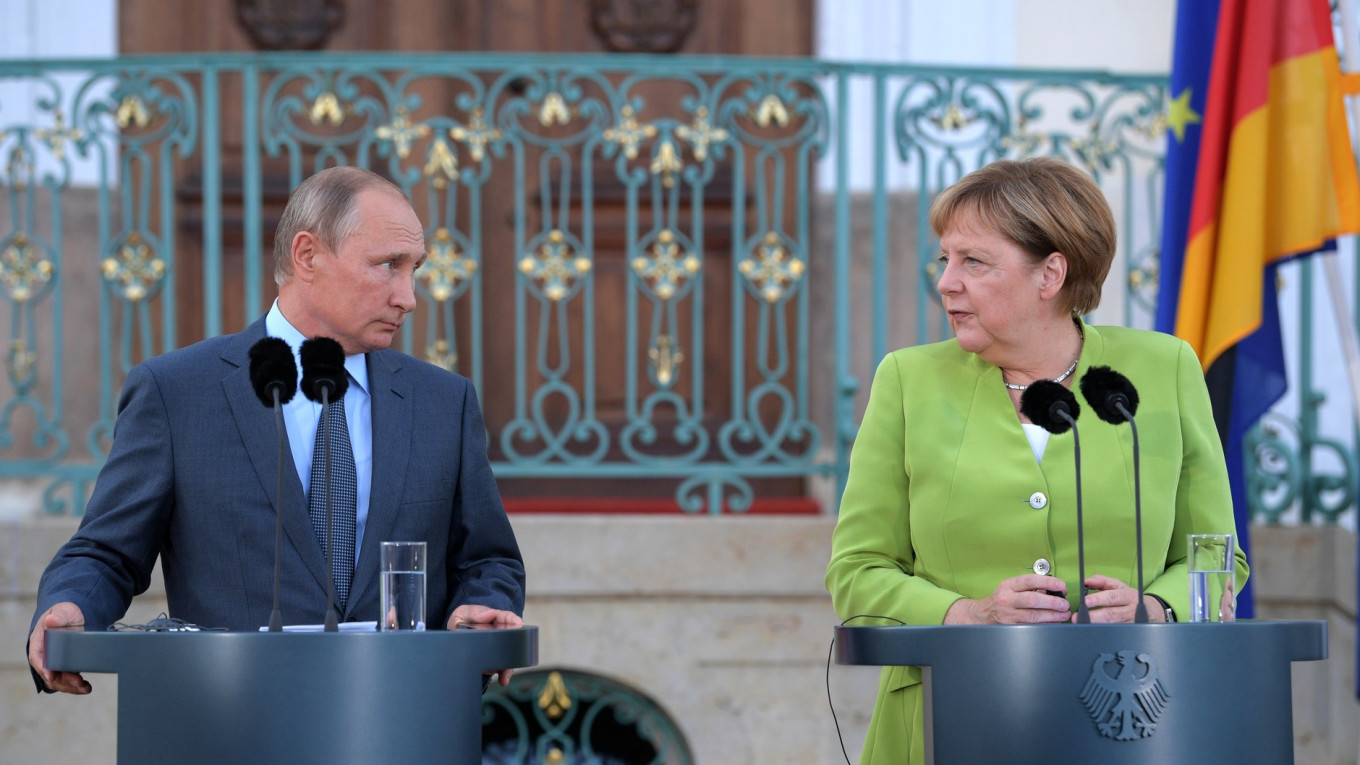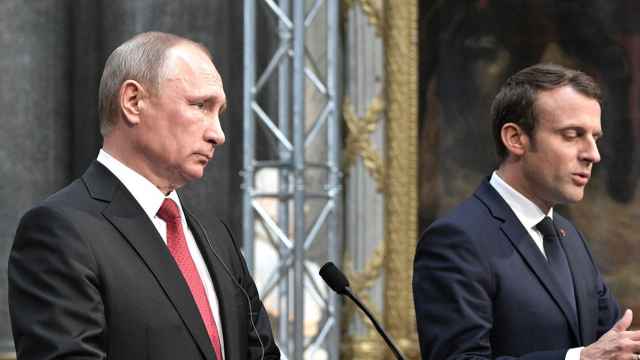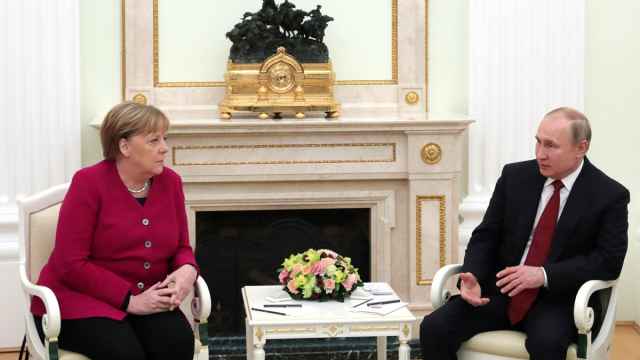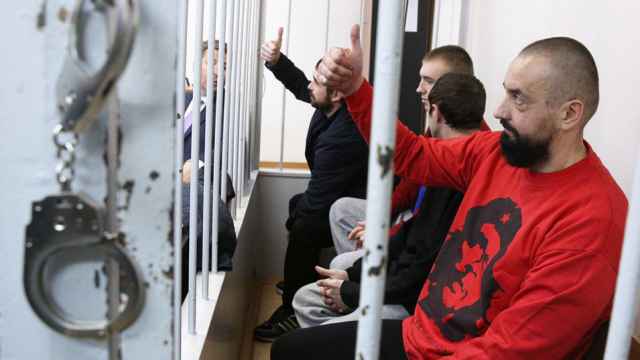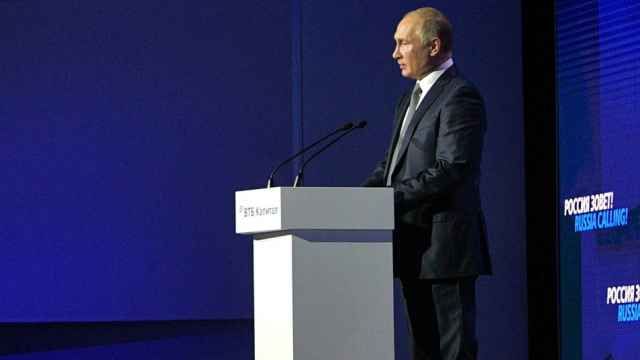Russian President Vladimir Putin and German Chancellor Angela Merkel "expressed concern" over a spike in tensions in east Ukraine and discussed jailed opposition figure Alexei Navalny in a phone call on Thursday, the Kremlin said.
The call came as clashes between pro-Russia separatists and Ukrainian forces have increased in recent weeks and a Russian military buildup on the border heightened fears of an escalation in the conflict.
"The President of Russia and the Chancellor of Germany expressed concern over the escalation of tensions in the southeast of Ukraine," the Kremlin said in a statement.
"Vladimir Putin drew attention to the provocative actions of Kiev, which has recently been purposefully exacerbating the situation on the frontline," it added.
Earlier Thursday, Ukrainian President Volodymyr Zelenskiy traveled to the eastern frontline. He has in recent days appealed to his country's Western allies for support.
The conflict broke out in 2014 after Moscow annexed the Crimean peninsula and has claimed more than 13,000 lives.
Kiev and the West have accused Russia of supporting the separatists with weapons and troops. Moscow has repeatedly denied those claims.
Peace talks mediated by France and Germany since 2015 have failed to end the fighting.
While the Kremlin has not denied its recent troop movements on Ukraine's border, it has insisted that Moscow is posing no threat.
In their call Thursday, the Russian and German leaders also broached the subject of jailed Kremlin critic Alexei Navalny, who went on hunger strike last week demanding proper treatment for back pain and numbness in his legs.
The two leaders also discussed the conflict in Syria and the political crisis in Libya.
A Message from The Moscow Times:
Dear readers,
We are facing unprecedented challenges. Russia's Prosecutor General's Office has designated The Moscow Times as an "undesirable" organization, criminalizing our work and putting our staff at risk of prosecution. This follows our earlier unjust labeling as a "foreign agent."
These actions are direct attempts to silence independent journalism in Russia. The authorities claim our work "discredits the decisions of the Russian leadership." We see things differently: we strive to provide accurate, unbiased reporting on Russia.
We, the journalists of The Moscow Times, refuse to be silenced. But to continue our work, we need your help.
Your support, no matter how small, makes a world of difference. If you can, please support us monthly starting from just $2. It's quick to set up, and every contribution makes a significant impact.
By supporting The Moscow Times, you're defending open, independent journalism in the face of repression. Thank you for standing with us.
Remind me later.


